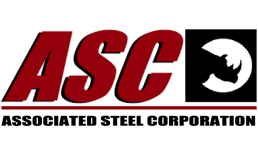REMAINING FIVE POINTS – elaborated
- If the finish shaft involves substantial step downs, or, if only a small portion of the bar needs to finish… share that information.
- Remember, your supplier cannot be responsible for a third parties work, and/or mistakes.
- If liability on the shaft is considerable, consider parking it in another parties driveway.
- Try to “Talk the Talk” Phrases like, “a stick of steel”, or, “cold roll”, or, “a length of steel”, will get you in trouble.
- Share important ancillary facts with your suppliers; have you received steel in the past that has not been straight enough, hasn’t cleaned up, or was inappropriate in another way?
Why share info on details of a finished part with the supplier?
Well, you don’t need to go over everything, but statements like; “It’s going to be a long small diameter shaft with a big lollipop head on one end” will tip off an astute vendor to the potential of post machining stress related problems. On the other hand, a statement such as: “There is only a very small high spot near the middle of a short shaft that needs to finish to 8″ Dia. The rest of the shaft is 7” Dia. That might make a difference on how much stock is needed for allowance on the raw material.
The caution stated in number 2, above, is just a gentle nudge to limit how much responsibility you find yourself mentally assigning to the supplier. In the final phase, except for mill defect, unless the vendor is handling the job from cradle to grave, the responsibility for success or failure is really out of their hands.
Jobbing the actual machining to an outside source is not just about saving money, mostly because it will generally cost more. But, there are times when “potential problems are probable”. Who knows the product better than the supplier? You may want to see if they felt confident making a difficult piece. If so, why not let them. That eliminates lots of “finger pointing” if the job goes south. If the job goes wobbly, who’s wallet comes out? Their product, their method, their machining, their liability. If they screw it up the burden is on them to do it over at their expense.
TALK THE TALK
Like it or not, many terms are esoteric to specific industries. With hydraulic components, a bar of steel is a rod. When dealing with freight haulers and steel coils, they use terms like; “Eye to the sky”, or, “Suicide”. If you find yourself working within the maintenance steel industry, try to use the same terms you hear the suppliers using. It will go a long way to eliminating surprises. Surprises in maintenance are generally not good.
In closing, if you know some relevant history about a specific shaft or application, by all means share it. If the bar diameter did not clean up the last time, share that. If the shaft broke or bent, share that. If you encountered hard spots or glazing, share that.
Now, if your supplier is decidedly not interested in your ancillary comments, or, if they cut you short and enjoin you to just tell them the dimensions of the steel you want, perhaps you should try a second source. No harm no foul. You can always go with the first source. It is always nice to test the waters.
-Howard Thomas, April 1st 2019
